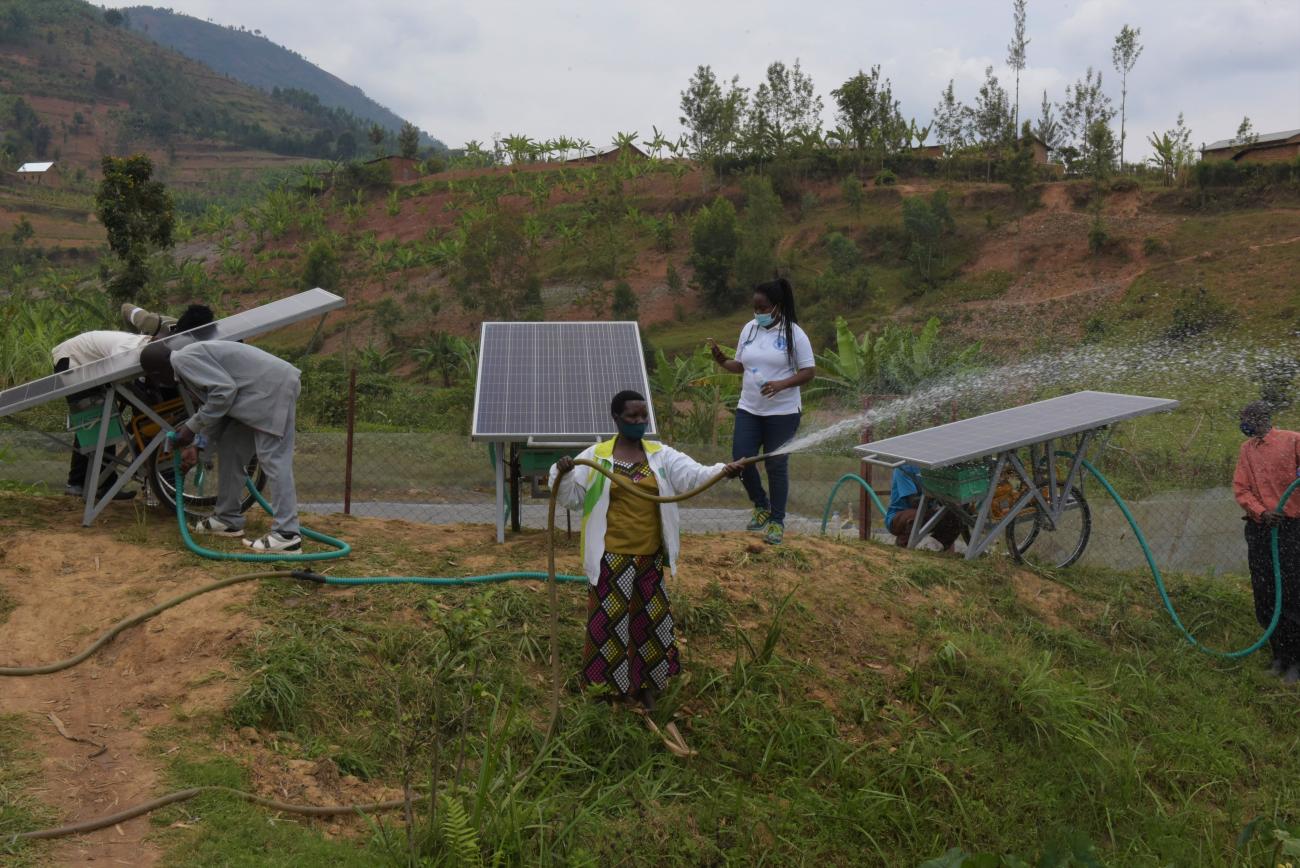FAO delivers Rulindo’s first solar-powered irrigation system

Rulindo is a farming district with priority given to crops such as, cassava, maize, beans, Irish potatoes, wheat, and green peas.
Some farmers do need adequate water for irrigation. However, vegetable growers in Yanze catchment, Ngoma sector in Rulindo district face the challenge of access to water from Yanze River whose water is also shared by Rwanda’s capital Kigali for domestic use.
“The water we use for our crops we shared it with Kigali City. Water and Sanitation Corporation (WASAC) gives us water sometimes at night or very early in the morning. We have to wake up at night to irrigate. At times the water is not even enough for the crops,” Jean Pierre Mbarushimana, a vegetable farmer.
he Food and Agriculture Organization of the United Nations (FAO) is currently implementing in the district the project “Knowing water better: towards a fairer and more sustainable access to natural resources - KnoWat” with the financial support from the German Federal Ministry of Food and Agriculture.
The project is working with the local government of the Rulindo district and communities to address water allocation and productive water uses in the Yanze basin which provides part of the water supply of Kigali city.
Solar-powered irrigation and water management
In order to support efforts in place as regards to water management, FAO through the KnoWat project supported the district with solar-powered irrigation systems. Three ENOS/Sunlight solar pumps and accessories have been delivered to farmers grouped under the Yanze Horticulture Production Cooperative (YAHOPROC) of vegetable growers in the Yanze catchment.
The cooperative was formed in 2015, with 199 members – 131 women and 68 men – at present. They sell most of their produce to Kigali city buyers.
This is the first time solar-powered irrigation system has been introduced in Rulindo district.
Apart from increasing productivity of the crops, the technology will reduce the heavy work load related to irrigation for farmers especially women.
“We’re excited to use the sunlight solar pumps. The natural solar energy used is easy to generate from the sun. Secondly, unlike other irrigation equipment like motorized pumps, farmers don’t have to incur expenses to buy fuel to run the solar irrigation system,” said Olive Uwizeyimana, a vegetable farmer.
“We’ve been using treadle pumps that require at least three people to peddle and irrigate. This has been a challenge for women to peddle the treadles, as it requires a lot of energy. Sometimes you have to wait for a man to help you peddle to be able to irrigate. The solar-powered irrigation is easy to use, you just turn it on and start irrigating. I can even irrigate my crops without the help of the man,” said Marie Chantal Akingeneye.
Solar-powered irrigation is reliable, affordable and climate-friendly as the energy is produced from the renewable source. The system also caters for water productivity.
The Vice Mayor of Rulindo district, Prosper Mulindwa, said the introduced solar-powered irrigation system is a model for the district with respect to small scale irrigation. He urged the farmers to ensure maintenance of the equipment for sustainability, adding that the farmers will learn new skills in the use and management of this technology.
The farmers were given basic training on using this technology.
The KnoWat project has contributed to the creation of the Yanze catchment Water Users committee and trained the members on proper water management. The project also constructed dams to store the water for irrigation.
The solar-powered irrigation system handed over to the farmers, each has a capacity (total dynamic head) of 40 meters, the discharge of 40 liters per minute, and the panel can collect up to 500 watts per day. The system can irrigate in a distance of more than 4 kilometers from the dam.











